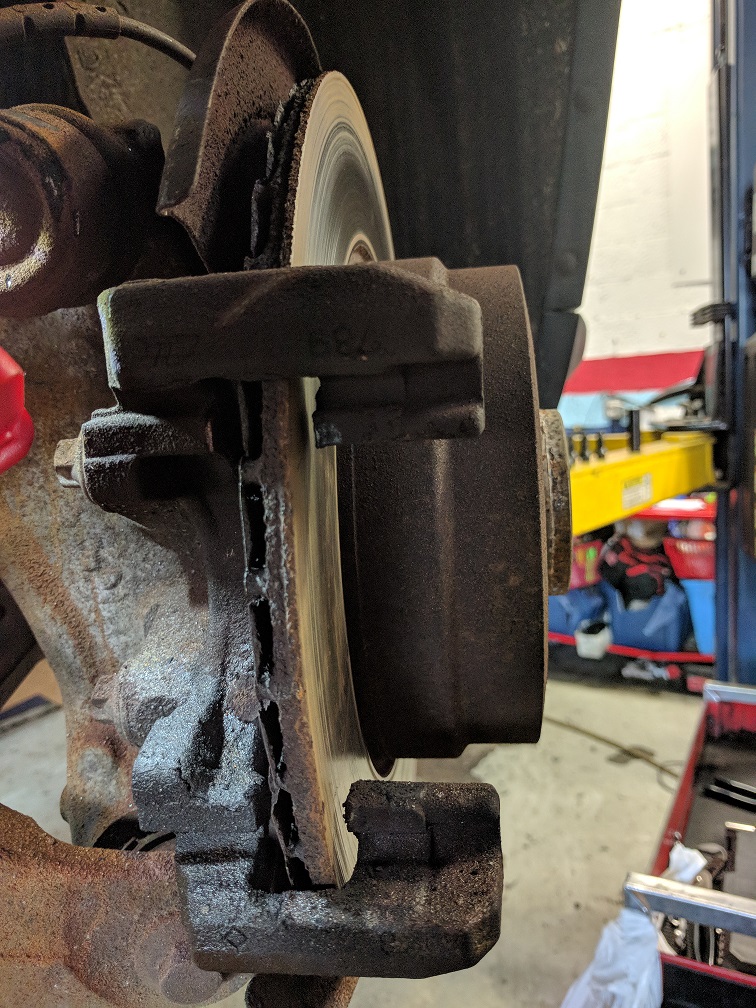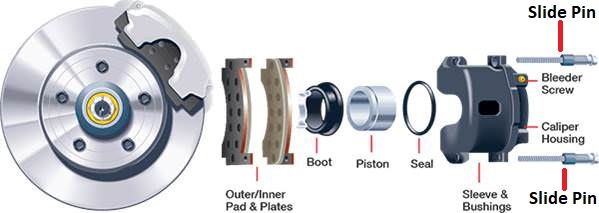Long New York winters and snow covered salted roads tend to prematurely wear out several components in automobiles. Most of these issues tend to manifest themselves through rust, which weakens suspension and braking components causing them to wear out sooner or outright fail. The most common premature brake wear issue comes from salt getting into the brake caliper components rusting out the pistons and slide pins causing them to seize.
Brake systems use hydraulic pressure to actuate small pistons located in the brake caliper. When you depress the brake pedal brake-fluid pushes these pistons out, which in turn push the brake pad against the face of the brake rotor. The friction caused by the brake pad material rubbing against the brake rotor is what causes your car to slow down and stop. Once you take your foot off the brake the piston slightly retracts to remove the brake pad off the brake caliper. With road salt, rust will build up on any exposed or improperly lubricated component which will cause the brake caliper will seize up and become unable to retract. This will cause the the brake pad to constantly rub against the rotor.
This will slightly reduce fuel economy since one brake is always dragging and the added friction will require the engine to work harder. Friction creates heat which can further cook the rubber seals in the brake caliper and boil the brake fluid which will now require a brake fluid flush. The excessive heat will also warp your brake rotor. All this leads to unnecessarily large repair bills. The moral being that if you hear a noise coming from your brakes it is safer to get them checked out by a trusted shop sooner rather than when you brakes are grinding metal to metal.



Leave a Reply